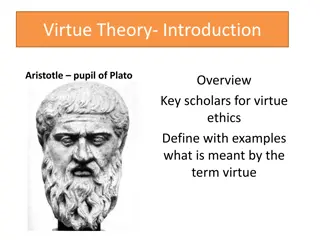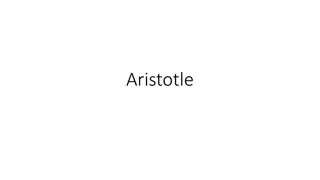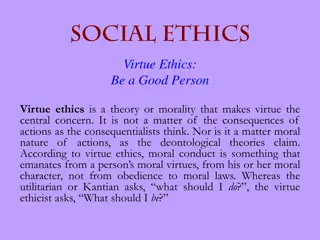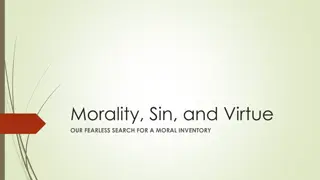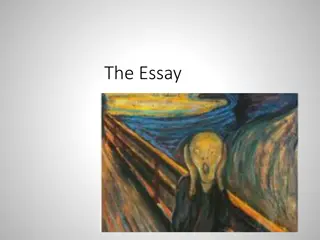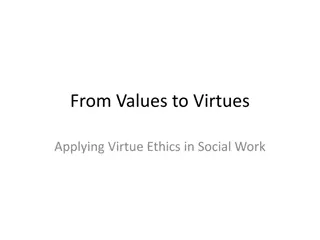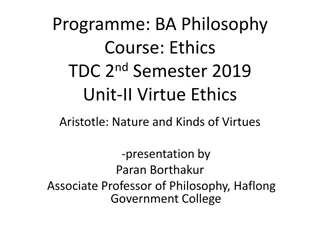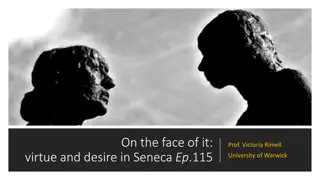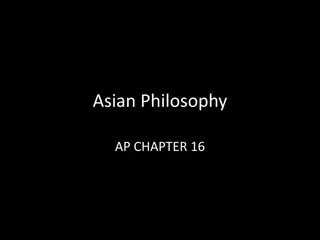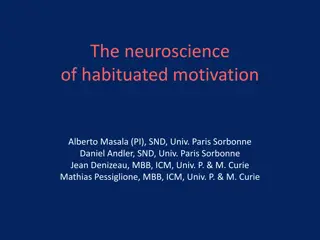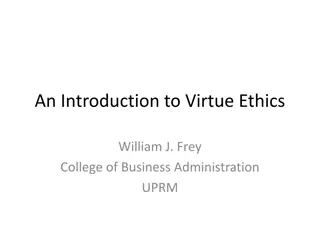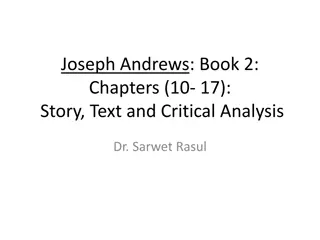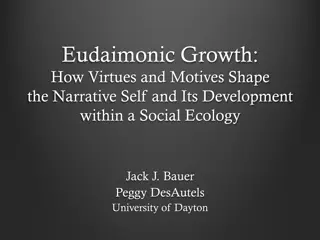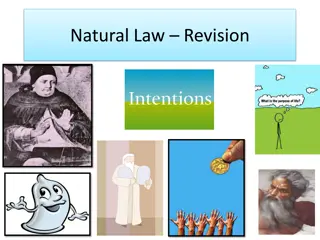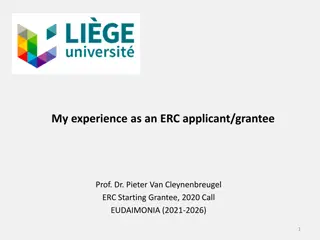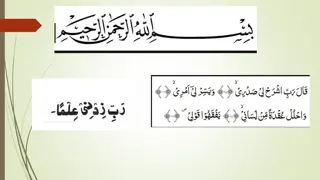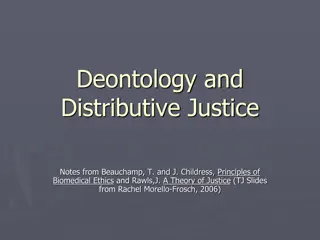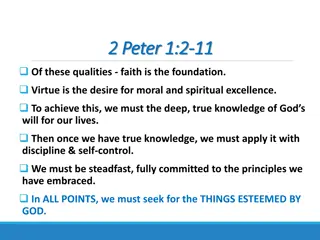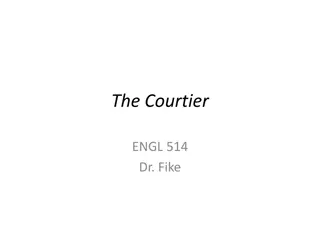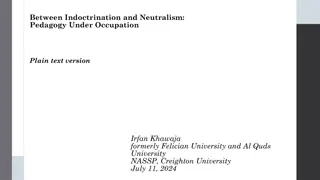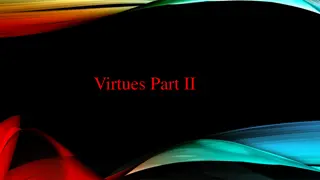Understanding Aristotle's Concept of Eudaimonia and Virtue
Aristotle's philosophy delves into the concept of eudaimonia, which is not mere pleasure or wealth but the state of living well and flourishing. Eudaimonia is achieved through the exercise of virtues, qualities that aid in fulfilling one's function or characteristic activity. This pursuit of eudaimonia as the final end encompasses the idea of performing one's function well, akin to good eyes seeing or good knives cutting. Virtue, according to Aristotle, plays a crucial role in achieving eudaimonia by aligning with one's ergon or function.
Download Presentation

Please find below an Image/Link to download the presentation.
The content on the website is provided AS IS for your information and personal use only. It may not be sold, licensed, or shared on other websites without obtaining consent from the author. Download presentation by click this link. If you encounter any issues during the download, it is possible that the publisher has removed the file from their server.
E N D
Presentation Transcript
Aristotle on eudaimonia, and function and virtue Michael Lacewing enquiries@alevelphilosophy.co.uk (c) Michael Lacewing
The good What is the good for human beings? What is it that we are aiming at? What would provide a successful, fulfilling, good life? Good: the purpose for which we do things, the point of doing them Some activities (making drugs, diagnosis) are done for the sake of others (health) Is there some end for whose sake we do everything else?
Eudaimonia The good for a human life Happiness living well and faring well : flourishing Eudamonia v happiness Eudaimonia is not a state of mind, but relates to the activity of living It is not subjective, but objective It is not easily changed, but relates to a life as a whole
What is eudaimonia? Not pleasure: animals share in this, but there is more to a human life Not wealth: money is a means to an end Honour? But what do you want to be honoured for? The virtues? Not just having them, but exercising them. What about being virtuous but very unfortunate?
Final ends Final end: an end that we desire for its own sake, not for some further purpose Is there just one final end ? Is eudaimonia or anything else our only good? Some final ends, e.g. pleasure, knowledge, we seek both for their own sake and for the sake of something else, viz. eudaimonia These other final ends are constituent parts of eudaimonia But only eudaimonia we seek for its own sake and no other purpose
Eudaimonia and function Eudaimonia: living well, our final end But what is this? Ergon: something s function or characteristic form of activity (functioning rather than purpose) An x is a good x when it performs its characteristic activity well Good eyes see well; good knives cut well; good plants flourish (c) Michael Lacewing
Virtue Ar te: a quality that aids the fulfilment of a thing s ergon An excellence or virtue The focus of an eye; the sharpness of a knife (c) Michael Lacewing
The function argument Being rational guided by reasons is the characteristic activity of human beings Not reasoning but doing things for reasons This is a psychological property, an activity of the soul (psyche) So our virtues will be properties than enable us to do this well So eudaimonia consists in activity of the soul which exhibits the virtues by being in accordance with ( good or right ) reason (orthos logos) (c) Michael Lacewing
Testing the analysis Is this argument plausible? There are three types of good: goods of the mind (e.g. intelligence, courage, etc.) goods of the body (e.g. strength, health etc.) external goods (e.g. wealth, food, etc.). People generally agree that the goods of the mind are worth more than the others. Eudaimonia is living well . The argument spells this out. (c) Michael Lacewing
Testing the analysis The good life involves virtue, pleasure and prosperity Virtue: Central to the account. We must act on virtue, not merely possess it. Pleasure: People find pleasant whatever it is that they love. A virtuous person loves living virtuously. Prosperity: In order to live virtuously, we will also need a certain amount of external goods. (c) Michael Lacewing


